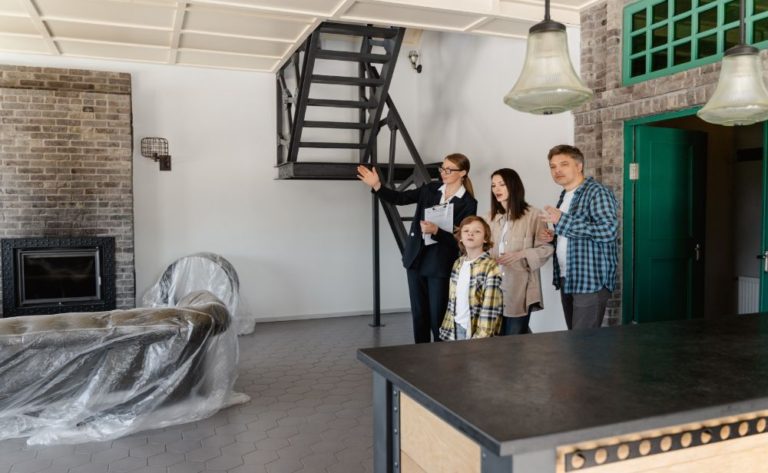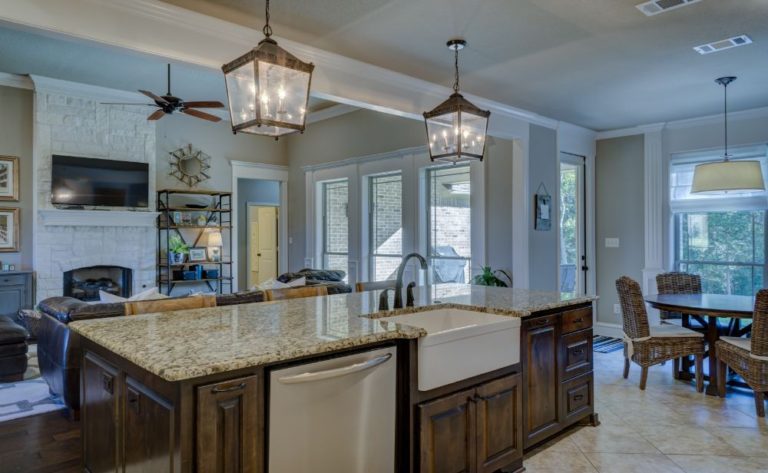Don’t Budge: 7 Compromises You Should Never Make When Buying a Home
Every successful search for a new house starts with making a wish list. With your list of must-haves at the ready, you’ll be able to hone in on the specifics of your search and quickly identify any potential properties that aren’t worth your time.
Nevertheless, there is a peculiar phenomenon that appears to take place when you are deep in the process of house-looking, and that is the fact that the more you look, the longer that wish list appears to become. However, sooner or later, you will have to come to terms with the truth that you cannot have everything. It is unavoidable that you will have to make some concessions in one area or another.
In addition, there is a limited supply of homes now available, which has resulted in a vicious rivalry among purchasers. As a result of this, you may feel compelled to stray far from the items on your wish list in order to get a residence.
That’s fine; maintaining a flexible mindset is essential. However, there are a few scenarios in which it is imperative that you draw the line. The following is a list of seven areas in which you should take a firm stance.
1. Investing in a property that needs work when what you truly want is a turnkey solution
You have never held a hammer in your hand, you suffer from a fear of power tools, and you have always imagined yourself in a brand-new, glistening object. However, this does not mean that you won’t find a gorgeous old farmhouse that is in need of a significant amount of renovations to be irresistible. Now is the time for you to make a decision: Are you ready to take on the mental and financial hurdles that come along with substantial renovations?
If you are operating in a highly competitive market, this is an alternative that you should give serious consideration to (with the assistance of an experienced general contractor). Adhere to your guns and insist on a turnkey home, advises Mike Kessler, a broker with TSG Residential in Davidson, North Carolina. If you don’t think your bank account or your marriage could endure several months of upheaval, Kessler says you should stick to your guns.
“There have been moments when I’ve said to clients, ‘after being with you for a week, I really think we need to look at new construction,'” Kessler says. “After being with you for a week, I really think we need to look at new construction.” He goes on to note that many of those customers expressed their gratitude for the change of direction at a later date, stating things like, “We would never have been able to enjoy ourselves in [an older] house.”
2. A reputable educational jurisdiction
Tina Maraj, a Realtor® with Re/Max North Orange County in Fullerton, California, recommends that prospective buyers make it a point to investigate the area’s educational institutions, even if they do not plan to have children of their own.
Does it make a difference if you have no plans to start a family anytime soon? Things may always go in a different direction. However, even if they don’t, strong schools almost always translate to a better resale value since prospective purchasers who have families will want to be in the correct school district.
Just remember to do your homework and figure out where the house is located in respect to the limits of the school district before purchasing it.
Maraj explains that real estate salespeople may frequently market a house as being located near a particular school area without necessarily specifying the district. This can lead to a great deal of confusion. It may be a big wake-up call if a buyer closes and they’re on one side of a main thoroughfare that is the dividing line between the highest-rated and the lowest-rated high schools,” said one real estate agent.
Visit the website of the school district to obtain a map showing the boundaries of the district.
3. The layout of the room
Does the home meet your minimal requirements with regard to the amount of rooms and the movement between the primary living areas? According to Sarah Garza, a Realtor and military relocation specialist at Trident Homes Realty in Arnold, Maryland, you should cross that item off your list if it does not apply.
Garza is able to provide some personal examples of lessons learned: As the spouse of a service member, she has relocated 12 times in the past 20 years, during which time she has bought and sold nine residences.
She expresses her sorrow by saying, “I regret that in the past I compromised on layout.” When I actually required four bedrooms, I settled for three even though I later came to regret my decision.
Sure, you can add on. However, you shouldn’t rely on that as a backup plan, Maraj advises.
“You can modify a layout to make it an open floor plan, but it is a lot more difficult to change the number of bedrooms and bathrooms,” she says. “You can change a layout to make it an open floor plan.” “In the long run, it’s possible that you’ll end up having a lot of troubles and taking on a really significant amount of financial responsibility.”
4. The people next door
Maraj recommends that while you are looking for a property, you not only concentrate on the house that you are interested in but also look at the homes that are nearby. Are the homes well-maintained or could they serve as the setting for an episode of “Hoarders”?
Your future resale value can be impacted by the condition of the houses in your immediate neighbourhood. In addition to this, they are capable of driving you completely insane. When you go to look at the house you might buy, make sure you look about and listen as well.
Maraj warns, “You can’t change the house in front of you or to the side of you,” but you also can’t modify the house behind you. “And if there is a barking dog every time you’re visiting the property, there is another item that you definitely cannot change,” the agent said. “That is something that you just cannot change.”
5. Your budget
You have probably already decided how much you are willing to pay for a house, and you shouldn’t stray from that number in any way when house hunting. However, you shouldn’t throw in the towel on the additional expenditures that go beyond the price listed on the sticker. This requires developing and adhering to a financial plan that accounts for recurring expenses such as mortgage payments, homeowner association fees, the cost of utilities, and taxes on the property. (Hint: You want to do this before you start looking at properties, and definitely before you start making offers.)
You will receive a pre-approval from a lender, and they will also tell you how much house you can afford, if you ask for it. However, this is only one piece of the jigsaw, and Kessler warns that the costs of homeownership can still put you in a pile of debt if you are not careful.
“I try to do a lot of pre-planning with clients about what they can truly afford, as opposed to what the bank tells you,” Kessler says. “It’s important to have realistic expectations about what you can afford.” The phrase “you never want to be house poor” comes to mind.
6. Commute time
Garza advises that if you have already decided that you are willing to commute for thirty minutes, you should not let yourself be persuaded into anything that will take you longer.
“Sometimes purchasers fall in love with all the glittering bells and whistles of a house that’s an hour away from work, and want to compromise on what they’ve told me from the beginning,” she says. I tell them, ‘I know it doesn’t matter right now because you really love this house, but that’s two hours every day that you’ll be sitting in the car and not enjoying your house.’ I know it doesn’t matter to you right now because you really love this house. Do you think it was money well spent?'”
She continues: Until you’ve actually driven the road to and from your potential house and your business, at the times you’ll be commuting, you should never contemplate compromise.
Being located just a few miles away from a major highway can add an additional hour to your commute time in some of the nation’s largest cities. After working hard all day, do you think you’ll be able to manage that? Before you decide to make the sacrifice, give it some serious thought.
7. Parking In reference to your automobile, if you have one (or more), you certainly need to have a secure location in which to park it. This might be in the form of a covered garage, a driveway, or an assigned parking spot.
According to Maraj, “there are many communities that now prohibit outside parking, guest spaces, and overnight parking, which might be a genuine homeowner’s nightmare if you have to fend for yourself.” “There are many communities that now restrict outside parking, guest spaces, and overnight parking.”
Stay true to the things that are most important to you while making your decision, and ignore the rest of the noise in the process, so that you don’t end up feeling frustrated after you’ve already completed a transaction.






